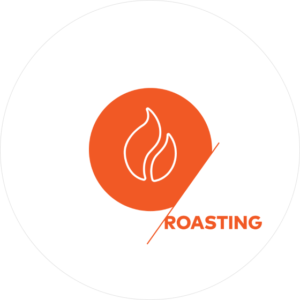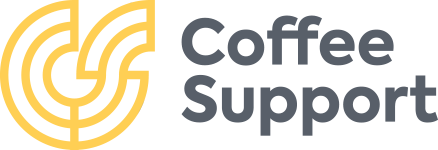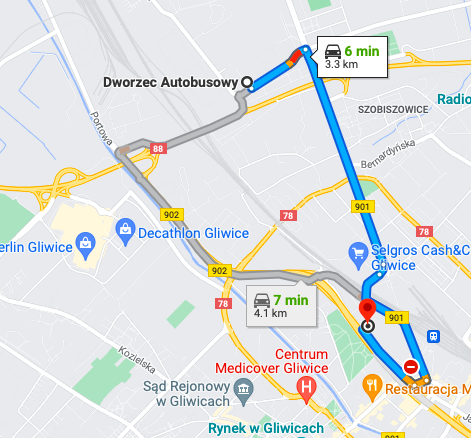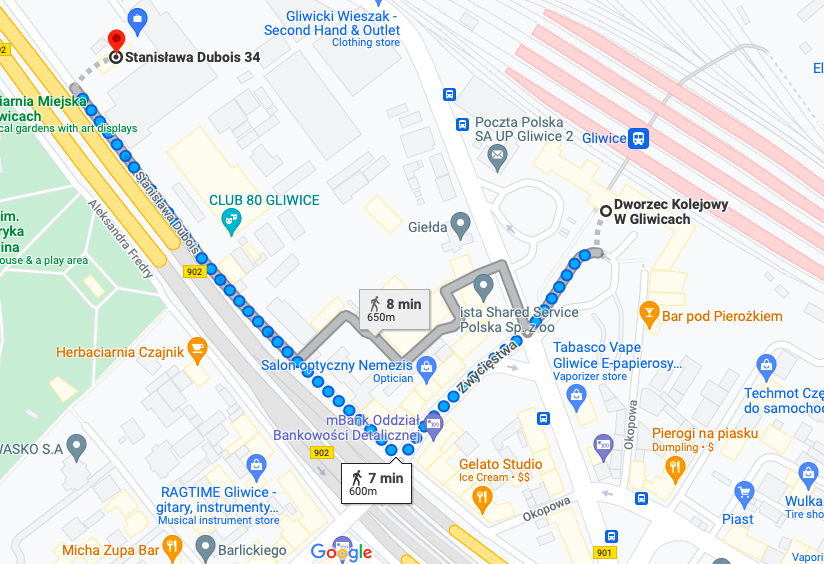
Roasting is a training focused on understanding and controlling the processes of roasting coffee in order to achieve its proper taste profile.
Roasting – General Information:
Learning a new skill always involves hours of trial and error, and an endless search for news on blogs, forums, YouTube, or reading multiple books, often ending up with mutually exclusive information. It may also be the case when it comes to learning how to roast coffee.
Fortunately, the scientific approach of the Specialty Coffee Association courses gives you solid ground to help you better distinguish fact from myth and, in fact, develop the practical skills of the art.
Controlling and repeatability of the coffee roasting process and the ability to recognize its defects both during coffee roasting and while tasting the finished coffee infusion is the key to the success of each roaster. Therefore, training courses in the Specialty Coffee Association – Roasting – are focused on gaining scientifically grounded knowledge and practical skills in this field.
The training is focused on understanding and controlling the processes of roasting coffee in order to achieve its decent flavor profile. Participants will learn how the coffee bean changes physically and chemically and what tools should be used to control the parameters of coffee before and after its roasting (density, color, solubility, etc.).
An important part of the training is also acquiring knowledge about coffee production management and the safety of this process, planning green coffee orders and optimization of production processes. All this to make the operation of the coffee roaster as profitable as possible from an economic point of view.
Basic level:
Whether you plan to roast your coffee professionally as an employee, plan to open your own coffee roaster, or take it as a hobby, this course covers everything you need to know to get started.
The SCA Roasting Foundation training is a training on the most important basics of the coffee roasting process, the operation of a coffee stove and the operation of a roaster. It allows you to understand well what the roasting process is, how it should be controlled and how to start the operation of the coffee roaster from the business point of view.
The course includes:
- Coffee – how does the species, origin, botanical variety or processing of beans influence the roasting process?
- Coffee roasting stages – how do coffee beans physically and chemically change during roasting?
- Coffee roasting terminology: coffee color, heat energy transfer, roasted coffee profile curve, development time, bean temperature, air temperature of the roasting process, etc.
- Construction of a typical coffee stove, types of coffee stoves, types of burners, temperature judgments, etc., and other devices that are important elements of the roasting room equipment.
- Learning to calculate the changes in weight, volume, and density of roasted coffee.
- Learning to use a burned-in color meter – a colorimeter.
- Basic business issues, including: coffee selection depending on the target customer, how to choose a coffee stove, how to create coffee blends to suit our customers.
- Basics of coffee roaster operation procedures related to safety and high work efficiency.
- The practical part includes 4 hours of roasting coffee using a coffee stove and tasting infusions of beans roasted in different colors and roasting profiles.
- In addition, we get acquainted with the appearance and operation of a working coffee roaster located in the same building as the Coffee Support training center.
Additional information:
- Requirements for participants: experience is not required.
- The training ends with a theory test. Obtaining a positive result of the exams gives the opportunity to receive the SCA certificate.
- Number of participants: 2 to 4 people.
- Duration of the course: 8 hours (a 45-minute meal break is planned during the course).
- Course price without SCA certificate: PLN 1,390 gross per person.
- The price of the SCA-certificate: PLN 575 gross per person.
Intermediate level:
The SCA Roasting Intermediate Course takes your roasting skills to the next level. The premise of this course is that participants already have some experience in roasting coffee, but want to broaden their scientific knowledge behind roasting and gain experience in controlling the roasting process, while learning how to create qualitatively stable products. Participants delve into theoretical principles of roasting such as heat transfer mechanisms, roasting profiling, how the physical structure of the bean changes, and how this affects the sensory profile of the final coffee brew. 3-day course including theory, hands-on exercises, coffee roasting exam and roasting profile tasting.
The course includes:
- Measure, collect and analyze data from raw and roasted coffee measurements.
- Temperature and heat issues. How to interpret the ROR temperature rise curve as part of expanding knowledge in the field of roasted coffee profiling.
- Maillard and caramelization reactions.
- Types of heat energy transfer to coffee beans.
- Units for measuring the color of roasted coffee, types of colorimeters and their use in the coffee quality assurance system in the roaster.
- The use of stoves for micro-roasting of coffee, the so-called “Sampler” for samples.
- Discussion of exemplary coffee sampling procedures before its purchase and the necessary equipment.
- Discussion of operating procedures and methods of production management in order to increase its efficiency, work safety and business profitability.
- Learning to roast coffee in order to obtain its decent color using different roasting profiles.
- Learning to roast coffee to a different degree / color in the context of different end times and different “developmenet” times of the entire process.
- Understand the difference in using coffee sensory testing to assess raw material quality versus assessing the roast profile.
- Use of sensory descriptive and exclusion tests when analyzing different roast profiles to understand the effect of roast profile on coffee flavor and aroma.
- Sensory evaluation of coffee in order to detect and describe the differences resulting from the use of different “development” times.
- Sensory evaluation of coffees roasted to different profiles, but with the same color of roasted beans.
- Sensory evaluation of properly roasted coffee and coffees with roasting defects.
Additional information:
- Requirements for participants: recommended Roasting course at the basic level and a minimum of 6 months of work in a coffee roaster.
- The training ends with an online practical and theoretical exam. Obtaining positive results of the exams gives the opportunity to receive the SCA certificate.
- Number of participants: 2 to 4 people.
- Duration of the course: 3 days, 8 hours each (a 45-minute meal break is provided for each day of the course).
- Course price without SCA certificate: PLN 3,390 gross per person.
- Course price with SCA-certificate: PLN 3,965 gross per person.
Professional level:
During the SCA Roasting Professional course, we work for 4 days. The two days are filled with coffee roasting practice only. Additional classes include exploring theoretical knowledge and a full-day exam, which is an excellent opportunity for further exercises in the field of roasting coffee. The practical part focuses on deepening the skills of controlling the stove and on the most important parameters of controlling the firing process. After completing the training, students gain the knowledge and experience that allows them to design any desired roasting profile on any coffee stove!
Pond this course introduces theoretical issues related to changes in the composition of organic and inorganic acids and volatile aromatics in coffee beans. Depending on the degree of roasting. Translating these issues into the selection of the method of roasting coffee depending on the target group of consumers and in the context of organizing your own business, which is a coffee roaster.
The course includes:
- Green coffee storage and packaging conditions. How physico-chemical analysis of raw coffee can protect us against the risk of losing coffee quality.
- To learn additional knowledge about the thermodynamic, physical and chemical processes taking place in coffee during its roasting.
- Defects of roasted coffee – how do they arise and how do they affect the sensory profile of coffee?
- The extractivity and solubility of the roasted coffee depending on the degree and style of its roasting.
- Organic and inorganic acids in roasted coffee. How their composition changes and how they affect the coffee sensor, depending on the degree and style of its roasting.
- Volatile aromatic compounds. How their composition changes and how they affect the coffee sensor, depending on the degree and style of its roasting.
- Management of a roaster in a business context in the field of: planning green coffee purchases, stock management of green and roasted coffee, creation of coffee blends, “post” and “pre-blending”, work organization, equipment inspections and service.
- The practical part of roasting coffee includes: control of the ROR temperature rise curve, control of the final temperature and color of the roasted coffee, thus efficiently planning the roast profile.
- The practical part of roasted coffee tasting focuses on: recognizing the different roast profiles; recognizing roasting defects, recognizing sensory differences of coffee roasted at different times “developement”.
Additional information:
- Requirements for participants: Roasting course at intermediate level required.
- The training ends with a practical and theoretical examination online. Obtaining positive results of the exams gives the opportunity to receive the SCA certificate.
- Number of participants: 2 to 4 people.
- Course duration: 4 days, 8 hours each (a 45-minute meal break is provided for each day of the course).
- Course price without SCA certificate: PLN 4,890 gross per person.
- Course price with SCA certificate: PLN 5,465 gross per person. *
Basic level:
Whether you plan to roast your coffee professionally as an employee, plan to open your own coffee roaster, or take it as a hobby, this course covers everything you need to know to get started.
The SCA Roasting Foundation training is a training on the most important basics of the coffee roasting process, the operation of a coffee stove and the operation of a roaster. It allows you to understand well what the roasting process is, how it should be controlled and how to start the operation of the coffee roaster from the business point of view.
The course includes:
- Coffee – how does the species, origin, botanical variety or processing of beans influence the roasting process?
- Coffee roasting stages – how do coffee beans physically and chemically change during roasting?
- Coffee roasting terminology: coffee color, heat energy transfer, roasted coffee profile curve, development time, bean temperature, air temperature of the roasting process, etc.
- Construction of a typical coffee stove, types of coffee stoves, types of burners, temperature judgments, etc., and other devices that are important elements of the roasting room equipment.
- Learning to calculate the changes in weight, volume, and density of roasted coffee.
- Learning to use a burned-in color meter – a colorimeter.
- Basic business issues, including: coffee selection depending on the target customer, how to choose a coffee stove, how to create coffee blends to suit our customers.
- Basics of coffee roaster operation procedures related to safety and high work efficiency.
- The practical part includes 4 hours of roasting coffee using a coffee stove and tasting infusions of beans roasted in different colors and roasting profiles.
- In addition, we get acquainted with the appearance and operation of a working coffee roaster located in the same building as the Coffee Support training center.
Additional information:
- Requirements for participants: experience is not required.
- The training ends with a theory test. Obtaining a positive result of the exams gives the opportunity to receive the SCA certificate.
- Number of participants: 2 to 4 people.
- Duration of the course: 8 hours (a 45-minute meal break is planned during the course).
- Course price without SCA certificate: PLN 1,390 gross per person.
- The price of the SCA-certified course: PLN 1,590 gross per person.
Intermediate level:
The SCA Roasting Intermediate Course takes your roasting skills to the next level. The premise of this course is that participants already have some experience in roasting coffee, but want to broaden their scientific knowledge behind roasting and gain experience in controlling the roasting process, while learning how to create qualitatively stable products. Participants delve into theoretical principles of roasting such as heat transfer mechanisms, roasting profiling, how the physical structure of the bean changes, and how this affects the sensory profile of the final coffee brew. 3-day course including theory, hands-on exercises, coffee roasting exam and roasting profile tasting.
The course includes:
- Measure, collect and analyze data from raw and roasted coffee measurements.
- Temperature and heat issues. How to interpret the ROR temperature rise curve as part of expanding knowledge in the field of roasted coffee profiling.
- Maillard and caramelization reactions.
- Types of heat energy transfer to coffee beans.
- Units for measuring the color of roasted coffee, types of colorimeters and their use in the coffee quality assurance system in the roaster.
- The use of stoves for micro-roasting of coffee, the so-called “Sampler” for samples.
- Discussion of exemplary coffee sampling procedures before its purchase and the necessary equipment.
- Discussion of operating procedures and methods of production management in order to increase its efficiency, work safety and business profitability.
- Learning to roast coffee in order to obtain its decent color using different roasting profiles.
- Learning to roast coffee to a different degree / color in the context of different end times and different “developmenet” times of the entire process.
- Understand the difference in using coffee sensory testing to assess raw material quality versus assessing the roast profile.
- Use of sensory descriptive and exclusion tests when analyzing different roast profiles to understand the effect of roast profile on coffee flavor and aroma.
- Sensory evaluation of coffee in order to detect and describe the differences resulting from the use of different “development” times.
- Sensory evaluation of coffees roasted to different profiles, but with the same color of roasted beans.
- Sensory evaluation of properly roasted coffee and coffees with roasting defects.
Additional information:
- Requirements for participants: recommended Roasting course at the basic level and a minimum of 6 months of work in a coffee roaster.
- The training ends with an online practical and theoretical exam. Obtaining positive results of the exams gives the opportunity to receive the SCA certificate.
- Number of participants: 2 to 4 people.
- Duration of the course: 3 days, 8 hours each (a 45-minute meal break is provided for each day of the course).
- Course price without SCA certificate: PLN 2,690 gross per person.
- Price of the SCA-certified course (only for SCA members): PLN 3,255 gross per person. *
- The price of the SCA-certified course for people from outside the SCA association: PLN 3,710 gross.
* Certificates are only priced for SCA members with a currently paid membership fee.
Professional level:
During the SCA Roasting Professional course, we work for 4 days. The two days are filled with coffee roasting practice only. Additional classes include exploring theoretical knowledge and a full-day exam, which is an excellent opportunity for further exercises in the field of roasting coffee. The practical part focuses on deepening the skills of controlling the stove and on the most important parameters of controlling the firing process. After completing the training, students gain the knowledge and experience that allows them to design any desired roasting profile on any coffee stove!
Pond this course introduces theoretical issues related to changes in the composition of organic and inorganic acids and volatile aromatics in coffee beans. Depending on the degree of roasting. Translating these issues into the selection of the method of roasting coffee depending on the target group of consumers and in the context of organizing your own business, which is a coffee roaster.
The course includes:
- Green coffee storage and packaging conditions. How physico-chemical analysis of raw coffee can protect us against the risk of losing coffee quality.
- To learn additional knowledge about the thermodynamic, physical and chemical processes taking place in coffee during its roasting.
- Defects of roasted coffee – how do they arise and how do they affect the sensory profile of coffee?
- The extractivity and solubility of the roasted coffee depending on the degree and style of its roasting.
- Organic and inorganic acids in roasted coffee. How their composition changes and how they affect the coffee sensor, depending on the degree and style of its roasting.
- Volatile aromatic compounds. How their composition changes and how they affect the coffee sensor, depending on the degree and style of its roasting.
- Management of a roaster in a business context in the field of: planning green coffee purchases, stock management of green and roasted coffee, creation of coffee blends, “post” and “pre-blending”, work organization, equipment inspections and service.
- The practical part of roasting coffee includes: control of the ROR temperature rise curve, control of the final temperature and color of the roasted coffee, thus efficiently planning the roast profile.
- The practical part of roasted coffee tasting focuses on: recognizing the different roast profiles; recognizing roasting defects, recognizing sensory differences of coffee roasted at different times “developement”.
Additional information:
- Requirements for participants: Roasting course at intermediate level required.
- The training ends with a practical and theoretical examination online. Obtaining positive results of the exams gives the opportunity to receive the SCA certificate.
- Number of participants: 2 to 4 people.
- Course duration: 4 days, 8 hours each (a 45-minute meal break is provided for each day of the course).
- Course price without SCA certificate: PLN 3,790 gross per person.
- Price of the SCA-certified course (only for SCA members): PLN 4,800 gross per person. *
- The price of the SCA-certified course for people from outside the SCA association: PLN 5,320 gross.
*Certificates are only priced for SCA members with a currently paid membership fee.




